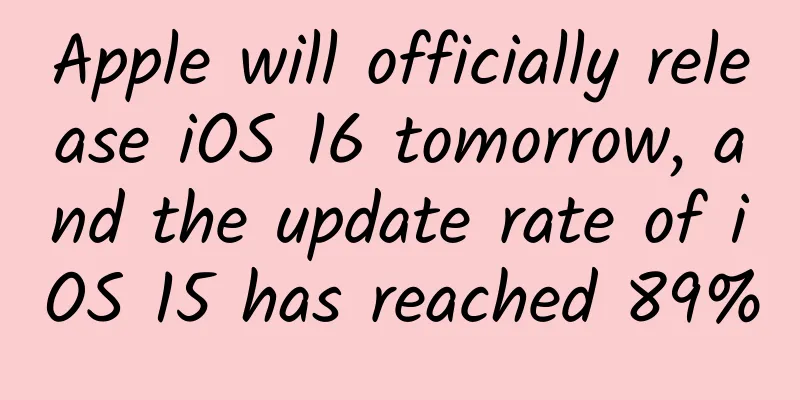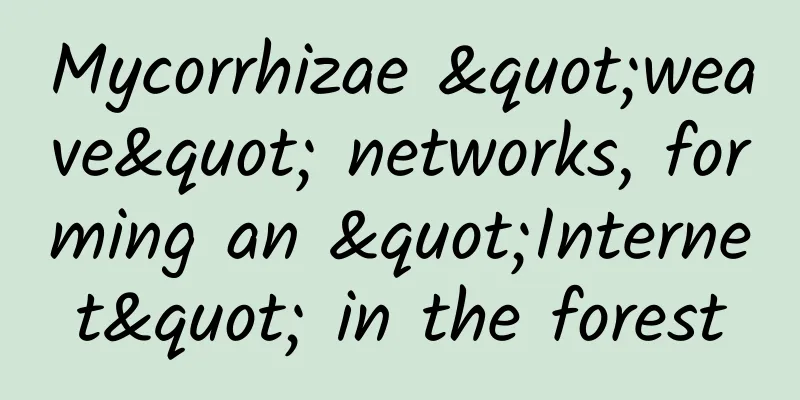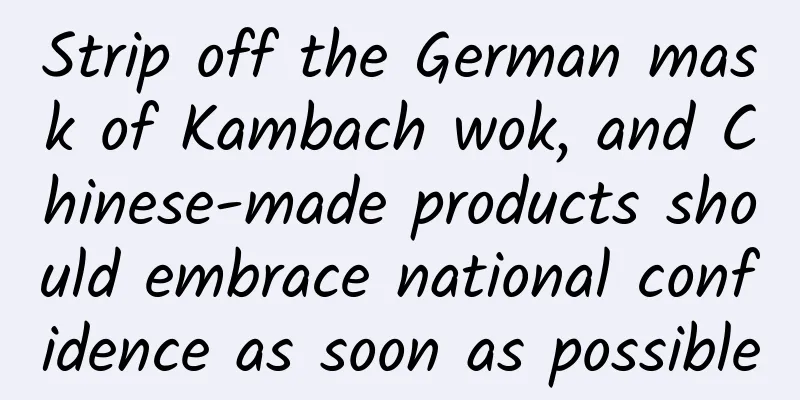Is Bullet Messenger really that useful? Or is the desire to escape from the circle of friends too strong?

|
Editor's note: 80s, 90s, 00s - rather than rigidly dividing people by age and looking for their own characteristics from these digital generations, we prefer to use "young people" to describe a group. They may have just entered college, or they may be nearly 30 years old. Their characteristics include but are not limited to being a middle school student, chasing stars, loving to watch anime, and burying themselves in social networks all day. This is not because they are born in the 90s or 00s, but because they are young. 36Kr's "Young People" series is dedicated to discovering the entertainment and consumption trends that young people are most concerned about nowadays. Please continue to pay attention to this album. A week later, Bullet Messenger is still the number one free app on the App Store. The Smartisan Technology press conference on August 20 did not leave many people with a good memory of the features of the new Smartisan phone, but Bullet Messenger stole the show. Although it was not produced by Smartisan Technology, people still regarded Luo Yonghao as the biggest promoter of Bullet Messenger because of the promotion and demonstration at the press conference, and all feedback was directed at him. One user left a message: "Have you considered letting Alipay be part of Zidan? That way I will be close to uninstalling WeChat." To this, Luo Yonghao’s answer was: “It is unrealistic to uninstall WeChat, but Alipay will soon be included in Bullet Messenger.” This means that red envelopes will also be available on Bullet Messenger in the future. WeChat, in its eighth year since its launch, has become the original sin of excessive social interaction. People curse WeChat while relying on the social relationships it has built up. The reason behind the growth of Bullet Messenger is not that it has made epoch-making innovations in its products, but that people’s desire to see a challenger to WeChat has reached a new high. Luo Yonghao's Bullet Messenger is determined to "become a super-efficient instant messaging software". At present, Bullet Messenger mainly grasps several "small pain points" in efficient social networking: later processing of messages, quick replies without entering the APP or chat page, voice-to-text conversion, and review of the initial chat history. Luo Yonghao's own traffic has brought many fans to this new product. In terms of UI design, Bullet Messenger adopts a simple blue style, which reminds people of the original QQ interface on smartphones. The current version does not have a social circle sharing function, and the added "information flow" function is harmoniously divided into two versions: Toutiao and Tencent News. However, many netizens left comments suggesting that the useless function of information flow should be removed and the "friend circle" should be added. This situation is somewhat of a dilemma. People are eager for options other than WeChat, but when describing this product, they ask for it to be like WeChat. In addition to WeChat, do we have any better social options? We found some answers among young people. The “disappeared” post-90s users How long has it been since you saw them posting selfies on WeChat Moments? The post-90s generation is a group of people who have experienced the great migration from QQ to WeChat. They grew up with QQ during their primary and secondary school years, and their entry into university coincided with the explosion of WeChat. The post-90s generation brought the desire to perform and vent from the QQ era into WeChat, and with the catalysis of 4G, they became loyal users of WeChat when they had new mobile phones at a time when they had the most time. Until one day, my parents and aunts and uncles who never used QQ started using WeChat. After internships and graduation, my leaders and colleagues joined the circle, and finally, WeChat merchants and purchasing agents also joined. The relationships on WeChat became more and more important, and they were too lazy to group them. They simply stopped posting to Moments, and the occasional forwarding was only visible for three days. WeChat opened up more advertising space in Moments, and amidst a large amount of invalid information, they actually missed the news that their best middle school classmate was getting married. The social anxiety of the post-90s generation has redefined the attributes of the three major social platforms today: "I don't exist on QQ, I'm fine on WeChat, and I'm free on Weibo." The post-00s generation has taken up the baton and established a social kingdom on QQ that the post-90s generation is no longer familiar with. Apart from Weibo, which is increasingly surrounded by fan circles, where else can the post-90s generation escape to? From this perspective, the social efficiency pursued by Bullet Messenger has not yet matched the needs of users born in the 1990s who are in a state of high escapism. With a high proportion of middle-aged male users, Bullet Messenger is targeting the work application scenario. The over-exaggerated individual needs of post-00s Tongtong, who was born in 2002, told 36Kr that she uses QQ quite a lot, but only occasionally opens WeChat. On QQ, she has her parents, relatives, and most of her classmates, while on WeChat, she only has her parents and a small number of classmates. She has not yet activated the WeChat Moments feature, and most of her classmates post their updates on QQ. Young people use QQ, while adults use WeChat. This is the consensus of many of her peers in the circle. When asked about the difference between WeChat and QQ, she pointed out that QQ has Centimeter Show, a little person who can choose his own image and will appear when sending a message, and will interact with the virtual image of the chat partner according to his mood. Similar to the previous generation of virtual image QQ Show, the corresponding red diamond recharge service at that time has become the current "small diamond", and the 12 yuan/month service covers four privileges: exclusive dress-up, distinguished role, cool actions, and shining nameplate. Half of Tongtong's classmates have spent money on it. Among the popular apps among post-00s, Tongtong only recognized Tik Tok and Zuiyou. She had never heard of fun social tools like Celebrity Moments or dating apps like Next Door Classmates. According to the "Post-00s Favorite APP List" released by Tencent Social Big Data, the top ten social apps are WeChat, QQ, Huakaihualuo, Huoshan Video, Sina Weibo, Tantan, Baidu Tieba, Momo, Interest Tribe and Zuiyou. Although there are interest communities such as Huakaihualuo and Zuiyou targeting post-95s and post-00s, the social software commonly used by post-00s is basically not much different from the mainstream market. Taking into account that the vast majority of post-00s are still in middle school and can only play with their mobile phones occasionally during breaks from study, and that they do not have the right to choose their devices, and that they still mainly use low-priced Android phones such as vivo, OPPO, and Xiaomi, the personalized needs of post-00s for social apps are actually exaggerated by the market. As for escaping from WeChat, the post-00s have not yet formed a strong stickiness to WeChat and there is no migration cost, let alone escape. New social app's video and scenario-based attempts "Everyone who really wants to do social networking wants to do IM (instant messaging), but IM is indeed the most difficult thing to do in social networking. No matter how innovative Bullet Messenger is, it is still competing with WeChat in the same dimension." Wu Yonghui, the founder of Tiki, told 36Kr that Tiki is a real-time video social software, and most of its users are born after 1995 and 2000. As for why people want to escape from WeChat, Wu Yonghui believes that the solidification of relationships and social behaviors, the two combined make users tired. According to data from Questmobile, the landscape of mobile social apps has not changed much since 2018. WeChat and QQ, which are used to handle strong relationships, and Weibo, Momo, and Tantan, which are used to handle weak relationships, have seen a steady increase in active users in their respective fields. Their respective barriers have already been formed, and the Matthew effect is evident. In the social market, investors are looking forward to new generational differences and opportunities. Wu Yonghui is betting on video and VR to break through. Tiki is similar to a foreign video social software called Monkey. Both use a relatively "rough" short-term video matching method for social interaction. When both parties are satisfied with the video, the relationship can be established. This application is very popular abroad, but it has not been able to create a wave like Bullet Messenger in China. A large part of the reason behind this is that Chinese people are relatively reserved and still lack a certain degree of trust in videos, making it impossible to generate any iterations. Other entrepreneurs have turned their attention to scene-based social networking. Tencent Doki and Idol in the star-chasing scene, LOFTER in the visual design interest circle, Xiaohongshu in the beauty scene, and short video apps such as Douyin all rely on the content produced in their respective scenes to form certain social attributes. But as Wu Yonghui said, whether an App is truly social depends on the strength of its networking. In a decentralized peer-to-peer network, IM is the most powerful in this regard, so everyone wants to do IM. Rather than saying that Bullet Messenger is a simplified version of WeChat, it is better to say that it wants to fill the gap in the Chinese market of WhatsApp, a popular social application in the world. WhatsApp does not have a circle of friends or public accounts, and there is no need to add friends manually. All you need is the other party's mobile phone number and the other party has opened WhatsApp. At present, as long as it is a Hammer phone, users can directly communicate with each other using Bullet Messenger. Non-Hammer phones will have to jump through the following page. The entry of Bullet Messenger with such a big momentum must have attracted the attention of Tencent. Whether it is a duel on the field or cooperation off the field depends on how Bullet Messenger chooses between Tencent's traffic infrastructure and its own independence. When WhatsApp began to imitate WeChat and inject more payment functions, Alipay's social attributes were never established. Those who shouted to escape from WeChat will find that more and more social products are converging with WeChat. So, it’s not WeChat that’s getting old, but the people in your circle. What we increasingly dislike is probably our increasingly secular circle. |
<<: How do iOS 12 and Android 9 fight phone addiction?
Recommend
South Korea's IBK Economic Research Institute: If the United States imposes a 25% tariff on imported cars, South Korea's auto exports may decrease by 18.59%
U.S. President Donald Trump announced a 25% tarif...
In-depth analysis of the quick sort algorithm
[[121946]] Preface Previously, I wrote an article...
After selling technology licenses and then selling buildings, is it possible for AMD to turn around?
After the Chinese state-owned company Tianjin Hai...
Alipay's "Five Fortunes" collection has started! New family photo, up to 48,888 yuan in prize money
On January 13, the 19th day of the twelfth lunar ...
Build a product retention analysis system from 0 to 1
In the capital winter, everyone is talking about ...
The iPhone is getting bigger and the iPad is dying
IDC released a report saying that it expects globa...
“Does artificial intelligence need to be like humans?”
Can machines think? Can artificial intelligence b...
The temperature has dropped sharply, so don’t be stubborn about wearing long johns anymore. Pay attention to the four principles of keeping warm!
According to the Central Meteorological Observato...
Not a black hole! China announced the discovery of a black hole 70 times the mass of the sun, which may be overturned!
Do you remember the blockbuster discovery of a 70...
The official version is coming soon! iOS 15 Beta5 push: new features and changes at a glance
The official version is getting closer and closer...
After Walmart fully acquires No.1 Store, can it still expand offline?
Yesterday was the general meeting of all employee...
Why can’t I stop staying up late?
Good sleep, healthy companion. What to do if you ...
The first Braille engraving machine in China! Will family education for blind students usher in a new dawn?
At a Wuhan exhibition to help the blind, a chemis...
The simplest video chat tool Xiaoyu accompany robot experience at home
With the help of technology, being able to see th...
Super cool future "Sky City"! How do drones create a "low-altitude economy"?
The blue sky above our heads is not only a playgr...







![[Community Taobao Affiliate Incubation] A detailed explanation of Taobao Affiliate sales and monetization methods](/upload/images/67cc2be79d25e.webp)

